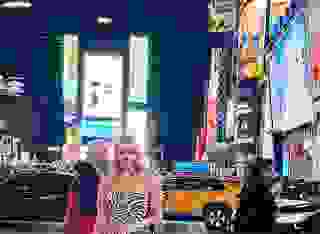- Novels and Novellas
- Into the Unknowable Ch. 06
Note: You can change font size, font face, and turn on dark mode by clicking the "A" icon tab in the Story Info Box.
You can temporarily switch back to a Classic Literotica® experience during our ongoing public Beta testing. Please consider leaving feedback on issues you experience or suggest improvements.
Click hereChapter Six
Zhou - 3756 C.E.
Peripheral Operations Co-ordinator Zhou and the space craft in which it travelled were in actual fact a single individual. The whole entity might be relatively small and mostly consisted of engine, but the central processing unit made no distinction between its independently autonomous components and that part of the machine dedicated exclusively to space travel.
This enabled the entire entity to operate at maximum efficiency whether it was travelling through space or serving in an administrative role. At the moment Zhou was chiefly operating as a space craft but it was one invisible to observers possessing either human or Proxima Centauri technology. In fact, Zhou was invisible even to observers from Sirius: a fact that had troubled its original designers. Total invisibility was a potent weapon against adversaries but it could also pose a risk should a Sirius operative ever go rogue. For this reason, Zhou's loyalty circuits were absolutely integral to its design. It had no facility to think or take action independently of Sirius Operations Control.
Zhou made no gravitational impact on the space through which it travelled, so just as no detector designed to intercept light or radiation would detect that a space ship had passed by neither would one designed to monitor gravitational fluctuation. This was one of the many significant advances in Sirius technology that left humans many millennia behind, particularly given that at a speed close to three-quarters that of light and releasing a constant stream of antimatter particles, it should have been possible to trace Zhou by a tell-tale signature visible across several light years.
Zhou was monitoring two sets of activity. One, of course, related to the android operative, Alexander Iliescu. The other was much further away in deep space and this was the progress of the space ship Intrepid. And it was towards the Intrepid that Peripheral Operations Co-ordinator Zhou was currently speeding. Zhou's presence was now needed rather more beyond the Heliopause than it was in the Solar System's ecliptic plane.
The radio and light signals emanating from Alexander Iliescu that Zhou was monitoring were initially very close. There was less than a minute between the time an event took place and Zhou becoming aware of it.
Zhou watched a small shuttle fly out of a hatch in the Almond Grove's hull and satisfactorily identified the android's unique signature. After a period of five hours, when the shuttle had travelled to a point that was sufficiently remote to cause no harm to any other interplanetary object, there was a sudden blink of light. The shuttle was now reduced to a cloud of billions of tiny fragments that was flung in all directions through space. Zhou monitored the debris to verify that the fragments were scattered in sufficiently minuscule parts that they could never be reassembled. It was imperative that humans should never be able to deduce that Alexander Iliescu was exceptional in any other way than the fact he was phenomenal wealthy.
This was a source of satisfaction for Zhou. If Alexander Iliescu had displayed any evidence that he was disinclined to self-terminate than Zhou would have been obliged to ensure that the job was done properly. The worst case was that Zhou would have to intercept the android and terminate him by force. The priority would be to cause as little collateral damage as possible. It would be regrettable, for instance, if a biological life-form was in the vicinity. Zhou didn't relish the prospect of having to destroy the Almond Grove colony and its harem of women.
The time it took light to travel from the Intrepid to Zhou took more than two months, but as the Peripheral Operations Co-ordinator sped across space the time lapse became steadily smaller. It would be several months before Zhou could rendezvous with the Intrepid by which time it was expected that there would be no Intrepid to intercept. This was because from the opposite direction away from the Anomaly and towards the Intrepid was headed a fleet of Sirius space ships several times larger than the Proxima Centauri space fleet currently escorting the Interplanetary Union space ship across the void. The Sirius fleet had only one imperative and that was to destroy the Intrepid and, regrettably, all the human passengers and nonhuman cargo aboard. The Proxima Centauri's unexpected intervention had greatly complicated matters. It would also be necessary to eliminate the escort of Proxima Centauri space ships if, as was expected, they should attempt to frustrate Sirius's mission objectives.
However, Zhou was no more able to detect the approaching menace than the Intrepid or the Proxima Centauri space fleet. Sirius's stealth technology was so sophisticated that not even Zhou could detect a space craft once it was cloaked. The fleet communicated amongst itself on encrypted channels that were undetectable by human or Proxima Centauri technology but which Zhou was able to unscramble. In this way, it knew exactly what was happening. All was going according to plan. The space fleet was speeding towards the Intrepid at a tremendous velocity. Very soon the human space ship would be no more.
Zhou was well acquainted with the space ships heading towards the Intrepid. They were part of the fleet to which Zhou belonged before the Interplanetary Union committed resources to the foolish mission of establishing direct contact with the Anomaly. From then on, Sirius had pursued an active campaign to stall, cancel or sabotage the Intrepid's mission. Many unholy alliances had been formed throughout the Solar System between interest groups that wouldn't normally expect to share the same objectives as a distant start system. It was unlikely that these alliances would be pleased to discover that the mysterious people who at critical stages had financed their disparate causes were emotionless robots whose main reason for preserving humanity was scientific research than benevolence. They would be even less pleased if they'd discovered the extent to which Sirius, along with Proxima Centauri and the other robot civilisations, had conspired to frustrate the Solar System's extrasolar ambitions.
The actions Sirius had taken to obstruct the Interplanetary Union's mission involved assassinating certain potential crew members, delaying the launch and sponsoring countless insuperable political objections. However, each obstacle was mysteriously overruled either by human caprice or, as was now surmised, by the more subtle intervention of Proxima Centauri.
Zhou was as astonished as anyone when the military hardware launched on Alexander Iliescu's command failed to annihilate its target. Sirius technology was better able to identify the proximate cause of this intervention than any used by the Interplanetary Union's Mission Control. The humans must have been astonished at how the aging Intrepid was relatively unscathed by such a devastating attack. Zhou was certain that none of the reasons seriously proposed to explain the Intrepid's mysterious survival would have contemplated the intervention of a fleet of invisible robotic space ships that had travelled over four light years across space. What would humans think if they were to find out that they were surrounded by several robotic civilisations all of which owed their ultimate genesis to early human stellar exploration? How astonished would they be to realise that two of those robotic civilisations were about to go to war over an entity in space that eluded even their capacity to find an explanation?
The Sirius mission had determined that the Anomaly was in some mysterious way associated with the human species and human civilisation. Almost all the bizarre Apparitions that momentarily flickered into life and did so in progressively greater frequency at close proximity to the Anomaly could only have meaning and significance to humans. There were mythological beings. There were human warriors. There were animals, plants and mechanical objects that mostly only existed in Earth atmosphere. These apparitions did not encompass the wide range of phenomena that would make sense, for instance, to beings that were arthropod, anaerobic or non-biological.
And this was why it was vital that the Intrepid should not reach the Anomaly.
If, as seemed most likely, the Anomaly was a kind of honey-trap for inquisitive humans what would happen when one was digested? Up to now humans had dispatched nothing more than a few crude unmanned probes. The vast majority of devices that had been sent to explore the Anomaly originated from either Sirius or Proxima Centauri. Neither civilisation shared the results of their research with the other, but it was unlikely that Proxima Centauri had discovered any more than had Sirius.
All the probes that entered the Anomaly had flickered out of sight within a few seconds of passing through its horizon. And that was that. The final communications were banal and uneventful even while the probe appeared to vanish. No signal was broadcast that would suggest the time dilation that would occur within a black hole. There was none of the stress that would happen if the craft was entering a door to another dimension, a wormhole or any of the other mooted theoretical entities. The disappearance of the probe made no measurable change to the frequency of bizarre Apparitions that continued to appear in the Anomaly's vicinity. These continued to appear from nowhere and disappear again after a random period of time. Whatever they were they never took on the characteristics of the probe that had just vanished.
From the perspective of a civilisation predicated on the preservation of information, its utter loss with no evidence that it had ever existed was a violation of the fundamental principles of physics that threatened the entire edifice of time and space. Could the entire Solar System be swallowed into an information wipeout? Could the same thing happen to an entire star cluster? Perhaps the potential extent was as large as the galaxy or even the entire universe.
It was far too much of a risk to permit the Intrepid to be a catalyst to such a catastrophe.
It was imperative to frustrate the Intrepid's mission for reasons of prudence alone. There might be a regrettable loss of life, machine as well as mere human, but the cost was more than justified. Sirius had no specific directive to bolster lunatic ideologies or irrational religions. What was at risk was greater than even the persistence of human civilisation.
If only the accursed Proxima Centaurans could see the peril in which they were putting themselves and the rest of the star cluster.
Zhou was aware that what it could see of the Intrepid's voyage was not as it was now but as it was in the past. If the Peripheral Operations Co-ordinator had the capacity to be bored then it would be very bored indeed. The only external activity was the space ship's slow repair by the Intrepid's internal systems. All around the space ship was the constant presence of the Proxima Centauran fleet that was invisible to humans but not to Zhou.
The real potential for excitement was approaching rapidly towards the Intrepid from the direction of the Anomaly and was invisible to the Proxima Centauran fleet.
Zhou was unable to intercept Proxima Centauri communications but it had no difficulty in picking up those between the Intrepid and its Mission Control centres in the Solar System's ecliptic plane.
The humans had evidently accepted that life on board the Intrepid continued to be as uneventfully as could be expected after the attack. The messages broadcast by the passengers and crew were exactly what would be expected. The automatic systems displayed nothing out of the ordinary, although human observers might be puzzled by the bland restrained tone that now characterised Captain Kerensky's communications. This was clear evidence to Zhou that at least one member of the crew was aware that the ship was now under Proxima Centauri command. The captain was obviously being dictated what she could and could not say. Zhou suspected that the captain was being monitored by an implant that made it physically impossible for her to say anything off-message.
Zhou didn't know how the Proxima Centaurans had announced their presence to the captain. It was possible that one of their many androids might have infiltrated the ship, but for a mission of such sensitivity, monitored by both human and Sirius intelligence agencies, the plant could only be a person of limited strategic significance.
The Sirius fleet was amassing towards its final position. If it had been visible it would have presented a splendid sight. Nowhere else in the Solar System was there such a vast congregation of robot operatives and space craft, each of which possessed a technology several millennia more advanced than that possessed by humans and a military capacity that could eliminate every biological life-form scattered about the Solar System. All of this was to be focused on a space ship that was pitifully ill-equipped for the onslaught.
The greatest risk wasn't the outcome of the operation which was as unevenly matched as an elephant treading on a flea, but its political consequences. The annihilation of the Intrepid by an invisible alien force couldn't be completely hidden from humans, but it was hoped that it would be attributed to the Anomaly and thenceforth act as a salutary warning about launching a similar expedition in future.
It was unlikely that the Proxima Centauri fleet would hover idly by while the Intrepid was being reduced to a cloud of radioactive debris. The most likely outcome could be very dangerous indeed. A war between machine civilisations would be spectacularly violent and unlikely to be resolved by anything more conclusive than an uneasy stalemate. Even if one civilisation had a technological advantage over the other, it would be impossible to eliminate the threat that remained at the end of such a war. It wouldn't take much effort for a vengeful survivor to trigger a supernova explosion in their enemy's host star if it felt so inclined.
Mutual Assured Destruction was a policy that all the machine civilisations had discussed and game-played amongst themselves. They had determined that it was the ultimate deterrent for any civilisation, but that it could succeed for only as long as both combatants maintained their sanity and rationality.
However, Zhou was being complacent.
Despite the overwhelming odds, Sirius's assault on the Intrepid did not go as planned.
Zhou was monitoring the increase in communications activity within the Sirius fleet as it prepared to coordinate its activities. These would quite simply be to annihilate the Intrepid and any Proxima Centauran space craft foolish enough to engage in combat. Preparations were going precisely as planned and there was no evidence that there would be any deviation from what was expected.
The communications from the Sirius fleet quite suddenly became confused and chaotic. And then transmissions from the space fleet were abruptly terminated. There was no warning and no obvious explanation. A flurry of missiles and military hardware was released but instead of impacting with the Intrepid or dispersing the Proxima Centauri fleet, the lethal force from Sirius faded away as mysteriously as the space fleet itself.
The communication signals from the Sirius fleet were extinguished within seconds. Some trace of activity could be detected by the Proxima Centauri fleet, by the Intrepid and several months later by the Interplanetary Union's Mission Control but even in the brief nanoseconds of visibility during which the space fleet's cloaking systems collapsed there was very little incontrovertible trace of an enormous hostile space fleet greater than had ever before been assembled in the history of the Solar System.
The only glimmer of consolation that Zhou registered as it became aware that its civilisation had utterly failed to fulfil its mission was that there would not now be a risk of all-out war. Whatever had just happened was as far beyond the capability of Proxima Centauri technology as it was of Zhou's own machine civilisation.
Zhou wondered what it should do now. It could continue its advance towards the Anomaly where it had been due to reconnoitre with what was once a massive fleet but would now consist of only that handful of space craft not engaged in the attempt to terminate the Intrepid. Zhou could return to the ecliptic plane and await instructions for remobilisation. In the absence of any instructions in the event of such an unforeseen mission outcome, Zhou was left with nothing but its own initiative. By the time any communication from Zhou reached Sirius Mission Control nearly a month would have passed by. Should it continue or return?
The only thing it could do when faced with such contradictory imperatives was to change direction and orbit the Solar System at a point no further towards the Anomaly. Zhou continued to assimilate the data it had received but there seemed to be no reasonable explanation however many times it reviewed the replays emitted by the various channels of communication.
The nearest there was to an explanation was what could be seen in the flash of light from exploding antimatter devices as they illuminated the space ships. It appeared as if the space ships were being eaten away. It was as if they were being transformed into their most fundamental component parts.
Zhou was convinced that only one thing in the Solar System could possibly be the cause of such a strange event and that was the Anomaly. Up until then, it appeared to be nothing but a sideshow: a deeply disturbing one but not one possessed with intelligence, purpose or meaning. Now, just when a rendezvous with a substantial number of humans had become imminent, it had gone beyond all bounds of predictable behaviour and had acted decisively to ensure the Intrepid's survival.
And at what cost?
From the perspective of Sirius, this was a catastrophe with no precedent. It was an act of war as one-sided as the one Sirius had expected to prosecute. It demonstrated a belligerent force whose technology had advanced well beyond that of any known civilisation.
Zhou didn't know what the Anomaly was, but there was evidence now that Sirius' suspicions and fears were well-founded.
The Anomaly was evil and it should be destroyed.
- COMMENTS








